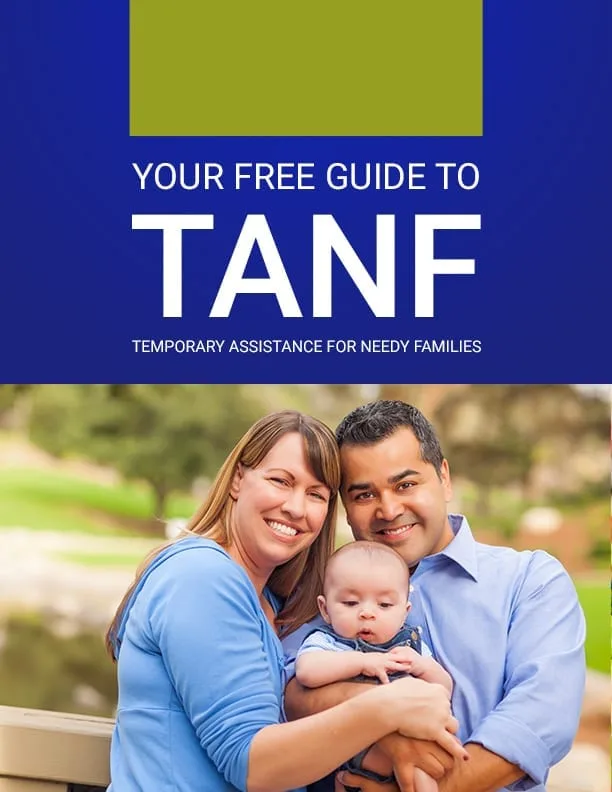Your Free Guide to Education Grants
Your Free Guide to Education Grants
We are privately owned and not affiliated with the government in any way or form.

Millions of students in the United States pursue higher education. However, the high cost of tuition may serve as a barrier for many. In addition to the cost of tuition, there are often additional fees for books, materials, access to services, parking, meals and lodging. There are a number of public and private organizations that offer educational grants that may help lower the cost of higher education in the United States.
Some grants are awarded as a result of merit or talent, whereas others may be based on religious affiliations, demographics or prospective employment. There are even grant opportunities for military veterans, active duty service members and their qualified family members.
What is an education grant?
A grant is money that does not need to be repaid. Like a scholarship, which also does not need to be repaid, grant money is commonly offered to students with the understanding that the student meets certain criteria or standards.
For example, some grants require the applicant to maintain a certain grade point average (GPA) while enrolled in school. Others may require students to study in a certain field. In these cases, grants may turn into loans – and need to be repaid – if students do not continue to meet the criteria.
Education grants also typically come with a few more strings attached. First, students who receive a grant must use the money for educational purposes only. It is up to the organization supplying the grant to determine what purposes qualify as “educational.”
For example, a student who needs a laptop computer to do schoolwork may be able to use the grant to purchase one. The organization issuing the grant may consider the laptop necessary for educational purposes.
Depending on the grant program, students may also be allowed to use grant money toward the following expenses:
- Books
- Supplies
- Housing
- Clothing
- Test fees
Main Types of Grants
Education grants are issued in three primary forms:
- Need Based Grants: These types of grants are given to applicants who demonstrate financial need and have an established low income. This type of grant is often funded by state and federal government bodies.
- Merit Based Grants: These types of grants are given to applicants who demonstrate outstanding abilities and skills in one or more areas. For example, grants may be awarded for academic excellence, athletic ability, or talent in the arts. This type of grant is most often funded by institutions of higher education, specific organizations and private donors.
- Student Based Grants: These types of grants are usually given to students who meet certain personal criteria, such as belonging to a specific demographic. They also may be provided by universities to applicants who plan to attend the school, and are usually offered by specific departments at the college.
Education Grants vs. Student Loans
Many students take out what are known as student loans, which is money provided by the federal government which must be repaid over time with interest. That means you not only pay back the money you borrowed, but additional money as well.
Many students graduate with tens of thousands of dollars in student loan debt. While it is the primary way to pay for higher education, grants may be used to lower the costs. The major difference between these two payment methods is that a grant does not need to be repaid; it is essentially free money, as long as any applicable requirements or criteria are met.
Many first time college students get confused when asked to fill out the Free Application for Federal Student Aid (FAFSA), thinking that they are applying for a student loan. However, this same application is used for various types of educational funding. It is primarily used to establish the student’s identity as well as qualify him or her for any need based grants that may be available.
Federal Education Grants
Education grants offered by the federal government are some of the most common types of grant money college students receive. To receive a federal education grant, students must complete the Free Application for Federal Student Aid (FAFSA) form. This is an overall application used to determine a student’s ability to pay for higher education and qualify a student for loans, grants, scholarships and other financial aid.
Applying for a Federal Education Grant
To apply for any federal education grant, you must start by completing the Free Application for Federal Student Aid (FAFSA) form. This form only needs to be completed once per year, even if you wish to apply for more than one grant. You can access the online application portal on the Federal Student Aid website here: https://studentaid.gov/fafsa-app/ROLES
The application requires you to provide several documents and information to verify your identity and financial information. Before you begin, gather the following documents for yourself and for your parents (if you are a dependent of your parents):
- Most recent federal income tax return, W2s and other documents that establish earned income
- Social Security Number
- If you are not a U.S. citizen, provide your Alien Registration Number
- Bank statements and records of investments
- A list of colleges and universities to which you will apply
FAFSA Deadlines
There are different deadlines for submitting the FAFSA each year. The federal application deadline is established by the U.S. Department of Education and takes place in June for the prior year. For example, the deadline for the 2023-2024 school year is June 30, 2024; the deadline to submit the FAFSA for the 2024-2025 school year is June 30, 2025.
However, the federal FAFSA deadline is not the only deadline to be aware of. In fact, state- and college-specific deadlines typically take place much earlier. It’s important to inquire about your prospective school’s FAFSA deadline as soon as possible to make sure you do not miss it.
In general, it takes about 10 days for your FAFSA application to be processed. Once you have submitted the form, you can check the status of your student aid awards by logging into your account.
Access your Federal Student Aid (FSA) account on the website here: https://studentaid.gov/fsa-id/sign-in/landing
Federal Pell Grant
The Federal Pell Grant is widely available and most colleges, technical schools, and online accredited universities accept it. Since it is a federal grant, you must meet basic income requirements to receive it. This grant is generally offered to students pursuing a bachelor’s degree.
The amount of money you can receive from a Pell Grant varies from year to year as the U.S. Congress sets the maximum grant amounts. Currently, the maximum grant amount you can qualify for is $7,395 per year.
Not all students qualify for the maximum Pell Grant amount. The total amount of money you receive depends on the following factors:
- Your family’s income
- The school’s tuition costs
- Your full-time or part-time status
- Your estimated enrollment time
To apply for a Pell Grant, you must start by completing the FAFSA form. See the “Applying for a Federal Education Grant” section of this guide to learn more.
Any money you receive through a Pell Grant is not given to you directly, but rather to the college or university you attend. You may lose your Pell Grant if you drop out of school before you have completed your degree, or if you fail to maintain a C average in your major course of study.
Federal Supplemental Educational Opportunity Grant (FSEOG)
The Federal Supplemental Educational Opportunity Grant (FSEOG) is another grant offered by the federal government but administered by the college or university you attend. Each year, participating schools receive a set amount of money from the federal government. Not all schools accept the FSEOG grant, so the first thing to do is to ask your financial aid department at school to find out.
If your school participates, you can apply for the grant using the FAFSA form. See the “Applying for a Federal Education Grant” section of this guide to learn more.
The FSEOG is offered to students who demonstrate extreme financial need. The amount of money awarded can range from $100-$4,000 per year. The total amount you can receive depends on the following factors:
- Your household income
- Amount of other financial aid you receive
- When you apply
- How much federal money your college or university has left
To maintain the FSEOG, you must keep your grades at a C level, and your income situation must not have changed. Money received through the FSEOG is not given to you directly, but rather to the university you end up attending. You can lose your grant if you drop out of school before you have completed your degree, or if you fail to maintain a C average in your major course of study.
Teacher Education Assistance for College and Higher Education (TEACH) Grant
If you plan to become a teacher, then you may consider applying for the Teacher Education Assistance for College and Higher Education (TEACH) Grant. This is a federal grant offered to students who agree to teach a high demand subject in an area of the country where there is a shortage of qualified teachers. This is known as a service obligation.
To receive a TEACH grant, you must generally execute a service obligation by teaching for at least four years in any of the following subjects:
- Mathematics
- Reading
- Science
- English language acquisition (ELA)
- Special education
- Foreign language
- Bilingual education
In addition to the high-need fields listed above, there may be other subjects identified as having a nationwide teacher shortage. There may be yearly changes that add new fields to this list. Applicants may be able to qualify for a TEACH grant if they teach in a field listed in the Teacher Shortage Area Nationwide Listing. You can access this annual list here: https://www2.ed.gov/about/offices/list/ope/pol/tsa.html
TEACH Grant recipients must perform their service obligation in an area that serves low-income children. Approved private and public elementary and secondary schools can be found in the annual Teacher Cancellation Low-Income Directory. Access the Directory here: https://studentaid.gov/tcli/
Elementary and secondary schools that are run by the U.S. Department of the Interior’s Bureau of Indian Education (BIE) or schools that operate on Indian reservations by Indian tribal groups under contract with the BIE qualify as low-income schools and may count toward the service obligation requirement.
Unlike other federal grants, the TEACH grant is also available to those pursuing graduate degrees. However, not all universities participate in this grant program. If you are interested in receiving a TEACH grant, contact your school’s financial aid department.
Your ability to get a TEACH Grant also depends on your academics. Generally, you must score in the 75th percentile on your admissions test for your college or university or maintain at least a B average in school.
If you are awarded a TEACH Grant, you must complete an Agreement to Serve or Repay, which is a form that outlines your required service obligation after graduation. The form also contains information about the consequences of failing to meet your service obligation. You can preview the form on the Federal Student Aid website here: https://studentaid.gov/teach-agreement/preview
There are a few exceptions to the service obligation:
- You are unwell and unable to teach
- You are currently enrolled in school
- You or your spouse are performing active duty military services abroad
- You are in a federally declared area of disaster
- The school to which you were assigned closes
To apply for the TEACH Grant, you must submit the FAFSA form. See the “Applying for a Federal Education Grant” section of this guide to learn more.
Iraq and Afghanistan Service Grant
If you do not qualify for a Federal Pell Grant, you may be able to receive money for college through the Iraq and Afghanistan Service Grant.
To qualify for this grant, you must meet the requirements for the Federal Pell Grant except for income. Additionally, you must have a parent or guardian who died in Iraq or Afghanistan after 9/11 and be younger than age 24 when you apply for this grant.
The maximum amount awarded through the Iraq and Afghanistan Service Grant is equal to the Federal Pell Grant, which is currently $7,395 for the 2023-2024 school year. This amount is disbursed to your college financial aid department each year, just as with the Pell Grant. This money is released into your student account at least twice a year (once for each semester).
All award money is applied to any outstanding school bills; the remaining balance (if any money remains) is placed into your student account for use on other educational expenses. This grant is only issued for 12 semesters as long as you continue to qualify.To apply for the Iraq and Afghanistan Service Grant, you must submit the FAFSA form. See the “Applying for a Federal Education Grant” section of this guide to learn more.
State Education Grants
If you qualify for federal student aid, you may also qualify for financial aid in your state. Most states have government-funded grant programs for students pursuing higher education. Many programs provide aid to low-income students, but there may be other grants available that are not need based.
The table below provides more information on state-funded grant programs available in all 50 states and the District of Columbia.
| State | Grant Name | Grant Type | Requirements | Grant Amount | More Information |
| Alabama | Alabama Student Assistance Program | Need Based | Low income, enrolled in college, meet financial aid requirements | Up to $3000 | https://www.ache.edu/index.php/ |
| Alaska | Alaska Education Grant | Need Based | Must be enrolled at least part time in school, be a legal resident of Alaska, low income | $500-$4,000 | https://acpe.alaska.gov/FINANCIAL-AID/AK-Education-Grant |
| Arizona | LEAP Grant | Need Based | Must be enrolled in a college in Arizona at least part time, low income | Up to $2,500 | https://azgrants.az.gov/arizona-leveraging-educational-assistance-partnership-azleap |
| Arkansas | Go! Grant | Need Based | Must be enrolled at least part time in school, be a legal resident of Arkansas, low income | $1,000 | https://adhe.edu/ |
| California | Cal-Grant | Need Based | Must submit the CA Dream Act Application (https://dream.csac.ca.gov/landing) or the FAFSA, must be attending school in California, low income | Up to $12,500 | https://www.csac.ca.gov/cal-grants |
| Colorado | College Opportunity Fund | Need Based | Must be enrolled at least part time in school, be a legal resident of Colorado, low income | $116 per credit hour | https://cof.college-assist.org/ |
| Connecticut | Governor’s Scholarship Grant | Merit Based | Must be a state resident, be a high school senior, be in the top 20% of class rank, must be attending a public/private college in Connecticut | Up to $5,000 per year for full-time students in a 4-year program; Up to $3,500 per year for full-time students in a 2-year program | https://www.ctohe.org/SFA/pdfs/SFABrochure.pdf |
| Washington, D.C. | DC Tuition Assistance Grant (TAG) | Need Based | Be a high school graduate, be a resident of Washington DC, low income | Up to $10,000 annually for students attending public colleges; Up to $2,500 annually for students attending private colleges | https://osse.dc.gov/dctag |
| Delaware | Governor’s Education Grant For Working Adults | Need Based | Be employed in the state, attend public Delaware college, low income | Up to $2,000 | https://www.doe.k12.de.us/Page/316 |
| Florida | Bright Futures Program | Merit Based | Have a minimum 3.0 GPA, complete community service hours, plan to attend a college in Florida | Up to $213.55 per credit hour | https://www.floridastudentfinancialaidsg.org/SAPHome/SAPHome?url=home |
| Georgia | HOPE Grant | Need Based | Be a resident of the state, graduate high school, plan to attend a college or technical school in Georgia, low income | Up to $341.94 per credit hour | https://www.gafutures.org/hope-state-aid-programs/hope-zell-miller-grants/hope-grant/ |
| Hawaii | Opportunity Grant | Need Based | Must be a resident of HI, must attend Hawaiian college, low income | Up to $4,000 | https://www.hawaii.edu/fas/basics/types_of_aid/ |
| Idaho | Idaho Opportunity Grant | Need Based | Be a resident of the state and plan to attend a college or technical school in Idaho, low income | Up to $3,500 | https://boardofed.idaho.gov/scholarships/idaho-opportunity-scholarship/ |
| Illinois | Illinois Veteran Grant | Merit Based | Must be on active duty for at least one year, must attend Illinois college | Covers all tuition and mandatory fees | https://www.isac.org/isac-gift-assistance-programs/illinois-veteran-grant/ivg-eligibility-requirements.html |
| Indiana | Frank O’Bannon Grant Program | Need Based | Must plan to be enrolled full time in an Indiana college, low income | $950-$4,500 | https://www.in.gov/che/ |
| Iowa | Iowa Grant | Need Based | Must be an undergraduate and resident of the state | Up to $7,500 | https://www.iowagrants.gov/index.do |
| Kansas | Kansas Comprehensive Grant | Need Based | Must be an undergraduate student enrolled in a Kansas college, low income | $200-$10,000 at private colleges; $100-$4,000 at public colleges | https://www.kansasregents.org/scholarships_and_grants |
| Kentucky | Kentucky Tuition Grant | Need Based | Must be a resident of the state and attending an approved Kentucky school | Up to $3,200 | https://www.kheaa.com/pdf/pubs/ky/getin/KYGIch2Part2.pdf |
| Louisiana | Louisiana Go Grant | Need Based | Must be a resident of the state, must also qualify for the Federal Pell Grant, have financial need, be enrolled in an in-state college at least part time | $300-$3,000 | https://mylosfa.la.gov/students-parents/scholarships-grants/go-grant/ |
| Maine | Maine State Grant Program | Need Based | Must be enrolled in an eligible university, meet income requirements, and attend a Maine college | Up to $2,500 | https://www.famemaine.com/affording-education/pay-for-school/maine-grant-tuition-programs/maine-state-grant-program/ |
| Maryland | Academic Competitiveness Grant | Merit Based | Be a freshman or sophomore undergraduate with exceptional grades in the science fields | $750-$1,300 | https://mhec.maryland.gov/preparing/Pages/College411/federalfinancialaid/pellgrant.aspx#:~:text=The%20Academic%20Competitiveness%20Grant%20 |
| Massachusetts | MASSgrant | Need Based | Must be an undergraduate student living in Massachusetts, low income | $300-$2,300 | https://www.mass.edu/osfa/programs/massgrant.asp |
| Michigan | Children Of Veterans Tuition Grant | Merit Based | Must be younger than 26 years of age and be the child of an armed forces staffer who is deceased or disabled | Up to $2,800 | https://www.michigan.gov/mistudentaid/programs/children-of-veterans-tuition-grant#:~:text=Description,a%20result%20of%20military%20service. |
| Minnesota | Minnesota Indian Teacher Training Program | Merit Based | Must be a Native American resident attending a school in Minnesota and working toward a career as a teacher | Full tuition | https://education.mn.gov/MDE/dse/indian/mnindtrain/#:~:text=The%20Minnesota%20Indian%20Teacher%20Training,career%20in%20an%20educational%20setting. |
| Mississippi | Mississippi Tuition Assistance Grant | Need Based | Must qualify for the Pell Grant, be enrolled in a state college and maintain a minimum GPA of 2.5 | Up to $500 for freshmen and sophomores; Up to $1,000 for juniors and seniors | https://www.msfinancialaid.org/mtag/ |
| Missouri | Access Missouri Financial Assistance Program | Need Based | Must be a state resident, attend an in-state college, not pursue a degree in religion and attend full time, low income | Up to $2,850 | https://dhewd.mo.gov/ppc/grants/accessmo.php |
| Montana | Montana Higher Education Grant | Need Based | Must have FAFSA on file, must be residents of Montana, low income | $500-$1,000 | https://www.umt.edu/finaid/types-of-aid/grants/ |
| Nebraska | Nebraska Opportunity Grant | Need Based | Be a state resident, attend a Nebraska postsecondary institution and have a low income | Average award of $1,721 | https://ccpe.nebraska.gov/nebraska-opportunity-grant-nog |
| Nevada | USAA Distinguished Valor Matching Grant Program | Merit and Need Based | Must be a child of a military veteran, have a USAA 529 college plan, and meet income requirements | Matches the amount you have saved in the USAA 529 plan up to $300 per year for five years | https://nvigate.gov/programs/matching-grants/ |
| New Hampshire | Foster Care Fund | Need Based | Must have been in foster care for at least one year after your 13th birthday | Waives tuition | https://www.dhhs.nh.gov/programs-services/child-protection-juvenile-justice/adolescent-program/paying-college |
| New Jersey | Tuition Aid Grant Program (TAG) | Need Based | Must be enrolled in the NJ college system, be a U.S. citizen and a resident of the state, low income | Up to $14,404 | https://www.hesaa.org/Documents/TagTable.pdf |
| New Mexico | Student Incentive Grant | Need Based | Must be a state resident, have a low income and be an undergraduate student attending a public college or tribal college | $200-$2,500 | https://hed.state.nm.us/financial-aid/scholarships/student-incentive |
| New York | Tuition Assistance Program (TAP) | Need Based | Must be a state resident, study at an approved college or university in New York, have a low income, be enrolled full time and not be in default on any student loans | Up to $5,665 | https://www.hesc.ny.gov/pay-for-college/apply-for-financial-aid/nys-tap.html |
| North Carolina | North Carolina Community College Grant Program | Need Based | Must be accepted into a community college in the state, be a resident of the state, and have a FAFSA on file, low income | Up to $2,200 | https://www.cfnc.org/pay-for-college/apply-for-financial-aid/nc-community-college-grant/ |
| North Dakota | Academic Competitiveness Grant | Merit Based | Must be enrolled in a STEM field of study, qualify for a Pell Grant and attend a college in state | Up to $1,375 per semester | https://ndus.edu/paying-for-college/paying-for-college-ndopportunities/ |
| Ohio | Choose Ohio First | Merit Based | Must be enrolled in a STEM field of study and attend an in-state college | $3,000-$5,250 | https://www.ohiohighered.org/cof |
| Oklahoma | Oklahoma Tuition Aid Grant | Need Based | Must have graduated from an Oklahoma high school and plan to attend an in-state college, low income | Up to $1,500 at eligible community college and career technology centers; Up to $2,000 at regional universities; Up to $3,000 at research universities | https://www.okcollegestart.org/Financial_Aid_Planning/Oklahoma_Grants/Oklahoma_Tuition_Aid_Grant.aspx |
| Oregon | Oregon Opportunity Grant | Need Based | Must be pursuing an associate’s or bachelor’s degree at an approved in-state institution and have a low income | Up to $7,524 | https://oregonstudentaid.gov/oregon-opportunity-grant.aspx |
| Pennsylvania | Pennsylvania State Grant | Need Based | Must be a state resident and be a graduate of a U.S. high school, low income | Up to $5,750 | https://studentaid.psu.edu/types-of-aid/grants/for-pennsylvania-residents/state-grant |
| Rhode Island | Rhode Island State Grant | Need Based | Must be a citizen of the US, and be a Rhode Island resident, low income | $100-$10,000 | https://www.collegegrants.org/rhode-island-college-grants.html#:~:text=The%20Rhode%20Island%20State%20Grant,apply%20for%20the%20state%20grants. |
| South Carolina | SC Tuition Grants Program | Need Based | Must be a state resident attending an in-state, non-profit school as an undergraduate, low income | Up to $4,700 | https://sctuitiongrants.org/ |
| South Dakota | South Dakota Opportunity | Need Based | Must be a state resident, attend an in-state college and maintain at least a C average, low income | Between $1,500-$3,000 per year | https://sdos.sdbor.edu/Pages/default.aspx |
| Tennessee | Wilder-Naifeh Technical Skills Grant | Merit Based | Must be attending an in-state college and must not have received the HOPE grant | Up to $2,000 | https://www.tn.gov/collegepays/money-for-college/tn-education-lottery-programs/wilder-naifeh-technical-skills-grant.html |
| Texas | Texas Public Educational Grant | Need Based | Must be enrolled in an in-state public university, must have a FAFSA on file, and have a low income | Amount varies depending on the university | https://comptroller.texas.gov/programs/education/msp/funding/aid/state-programs/txtpe.php |
| Utah | Utah Centennial Opportunity Program For Education | Need Based | Must be a graduate of a Utah high school, registered and enrolled with an in-state university, low income | Up to $1,000 per semester for up to four semesters | https://cobi.utah.gov/2023/2519/overview |
| Vermont | Vermont Incentive Grant | Need Based | Must be enrolled full-time in a university in Vermont and be pursuing bachelor’s degree (or doctorate in veterinary medicine), low income | Between $1,000 and $14,000 | https://www.vsac.org/pay/student-aid-options/grants |
| Virginia | Virginia Commonwealth Award Program | Need Based | Must be an undergraduate or graduate student enrolled at least half-time in an in-state university system, low income | Vary by institution and are subject to available funding | https://www.schev.edu/financial-aid/financial-aid/federal-state-financial-aid/virginia-commonwealth-award |
| Washington | Washington State Board for Community & Technical Colleges Opportunity Grant | Need Based | Must be a state resident enrolled in a Washington university system, maintain at least a C average and have an income at or below 200% of the federal poverty level | Up to $11,956 | https://www.sbctc.edu/paying-for-college/opportunity-grant-student.aspx |
| West Virginia | West Virginia Higher Education Grant Program | Need Based | Must be a state resident, a high school graduate and be enrolled full-time in an in-state college, low income | Up to $3,300 | https://www.collegeforwv.com/programs/wv-higher-education-grant/how-it-works/ |
| Wisconsin | Wisconsin Grant | Need Based | Must be a state resident enrolled at least half-time in the University of Wisconsin system or a technical or tribal school, low income | Up to $3,150 | https://heab.state.wi.us/programs.html#WG |
| Wyoming | The Brown and Gold Commitment Grant | Merit Based | Must be an international freshman student enrolled at the University of Wyoming and must have a GPA of 3.0 or higher | Up to $13,290 | https://www.uwyo.edu/sfa/scholarships/non-residents/brown-and-gold-commitment.html |
Non-Government Education Grants
In addition to federal and state grants for students, there are several grants offered to students through non-government channels. These channels often include the following types of organizations:
- Non-profit organizations
- Religious affiliations
- Gender based groups
- Academic foundations
- Company-specific student grants
You may be able to find non-government grants for college students by conducting an online search, such as browsing on Google. You can try searching for terms like “grants for college students” or “private grants for college.” Some websites you come across may compile a list of resources you can browse to find applicable grant opportunities. For example, CollegeScholarships is a website used by many prospective students to find not only scholarships, but grant programs as well.
Access the grant page here to find grant opportunities in a variety of categories, such as student-specific, subject-specific, minority-specific, and degree-specific: https://www.collegescholarships.org/grants/







